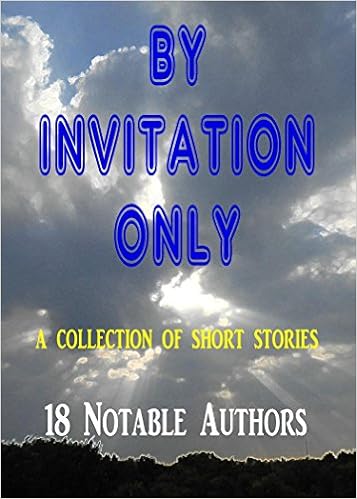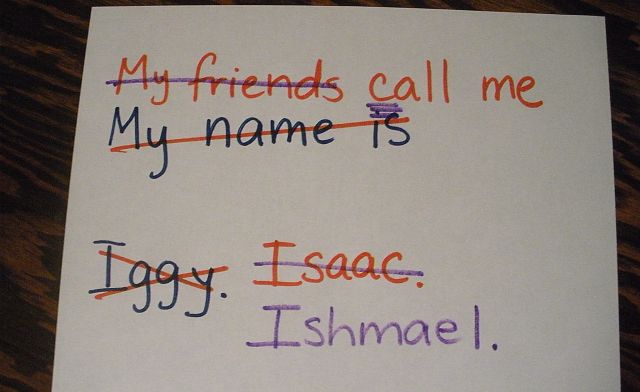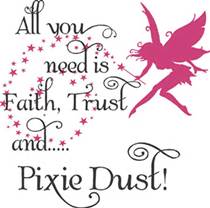Some time ago, I was invited to contribute a fiction story to an anthology put together by Kansas author, Sonny Colline. Flattered, I sent him one of my stories. The book sold for awhile on Amazon Kindle but is now
listed there for free. The stories are of varying quality; some will appeal, some may not.
Since today is a holiday and the book is now free, I'm going to share my story that is in the book. It's about a woman who lives in Kansas and...well, read it and see how she deals with a problem in her old age. Fiction is not my strong suit but I enjoy dabbling in it now and then.
Assisted
Living
By
Nancy Julien Kopp
Amelia glanced at her packed
suitcase by the kitchen door, ready for her son, J.D., to hoist into his
pick-up in the morning. He’d help her into the front seat and pat her knee like
he always did before he closed the door. But this time, they wouldn’t be coming
back to the ranch with groceries or a new pair of shoes. This trip would end at
the assisted living section of Stonevale.
She moved to the porch for one
last sit. Her rocking chair creaked as she stroked Cassie, the calico cat in
her lap. This porch on the back of the old stone house was her favorite spot,
smaller than the wide, showier one in front. Somehow, the view from the back
porch sated Amelia’s thirst for quiet beauty best.
Even Cassie seemed more content
here than any other place on the ranch. Could this old cat adjust to life at
J.D.’s busy place? One more thing to worry about. And how would she adjust to
life without this longtime pet? Her worry list grew every day.
She’d miss times like tonight--the sky tiered
in shades of pink to crimson as the sun slowly descended behind the hills. She’d
lived amidst prairie grasses and cattle the forty-five years of her married
life and another ten years beyond. The Flint Hills seeped into her very bones
from the day Jeb carried her across the threshold of the small, snug house he
built before their wedding. He added more to the house as their family
increased until it could be seen a long way off, no longer only a speck on the
horizon. Sprawling, made of natural stone that had to be hauled out to the
ranch. Walls so thick that the blistering Kansas summer heat and the bitter winds of
winter never bothered those inside. Decades passed and her spirit grew as strong
as the stone walls and her love for Jeb.
She only had a few head of cattle
now, not like the days when the Circle AJ put hundreds out to graze and grow
fat on the prairie grass. She'd fed cowhands at round-up time and played mama
to many of them. Christmas brought cards from many of those boys turned men running their own herds now and heading
their own families.
Her own J.D. turned into a man
who knew what was best for her. Least, that’s what he said often enough. She’d
fought this tall son of hers. Argued and hollered and bellowed to him and her
other three grown children about the move. Each one stood in front of her like
a piece of the stone their dad used to build the house. She even cried, and her
tears almost broke them. She wondered who hurt more—her children or herself. She
knew one thing—the ache inside far surpassed the pain from her arthritis. There
were pills for that, but the other cut too deep.
Jordy, her youngest, had tried to
put plump arms around her, but Amelia pushed her away. ”Mom, listen to us, please.
We don’t want to….”
The bitterness bled through when
Amelia spoke. “Don’t say it again, Jordy. I’ve heard all your arguments. An old
woman with health issues shouldn’t live out here alone.” She slammed the
kitchen door as she marched out to her rocker on the back porch that day, and
she’d been stewing for weeks after.
Now, she held the cat close and
inhaled the gentle sweetness of the prairie wildflowers mixed with the bit of leftover
smoke from the controlled burns that still wafted toward the back porch. Both
scents spelled home.
The kids were right about one
thing. The arthritis made it harder and harder to get chores done inside and
the few animals cared for. Some days, she ached in every joint in her body, and
sometimes she fell. She never told them. But she kept her cellphone in her
pocket to call for help if needed. Only problem, she couldn’t see the numbers
very well lately nor the names on the contact list. Hadn’t told those
busybodies that either. But they had eyes; they could see the house wasn’t as
clean as when they were youngsters. They probably noticed other things, too
.
Her children offered no choice.
They were moving her to this assisted living place tomorrow with a bunch of
doddering old people for company and staff to make sure she took her pills at
the right time of day and ate a good dinner. No porch to sit on either. The
woman who showed them the small studio apartment pointed out the view of the
distant hills from the small window. Amelia had turned away, silent as the
stone walls at home.
Now, Amelia swallowed hard. “Jeb,
if you were here, there’d be no cause for any of this. Damn rude of you to up
and die when you went out to check calves.” There, she’d done it again—talked
out loud to a dead man. So what? Who was here to know?
The cat jumped off her lap and
hissed when the sudden sound of someone knocking on the front door interrupted
Amelia’s thoughts.
A woman’s voice called. “Hello,
anyone home?” She sounded breathless
Strong rapping made a steady
drumbeat as Amelia made her way slowly through the kitchen, down the hall to
the massive wooden door while the knocking continued. “Hold on. I’m coming,”
she hollered.
With some difficulty, she opened
the solid oak door. One more thing hurting her bones.
A tall, middle-aged woman waited
on the porch, hand still raised after all the infernal knocking. Her long hair
needed combing, and her shoes were dusty. She looked dog-tired.
Before Amelia could speak, a
torrent of words gushed from the woman. “My car broke down on the highway. I’ve
walked a long way. Your house looked a lot closer. Can your husband help with
my car?”
Amelia studied the woman, then
decided she told the truth. “Come on in,
you look wore out. I’ve got some cold tea out in the kitchen. It might perk you
up a bit.” She led the way, one slow step at a time. The woman closed the door
behind her and followed.
Amelia waited until the stranger
had her first swallow of the strong tea. “I’m Amelia Jeffords and my husband is
gone.” She quickly added, “My kids come
out here to check on me every day.” She closed her eyes and uttered a silent
prayer for telling such a fib. Her kids all lived such busy lives, they stopped
by only once in a while. No need for a stranger to know it.
The woman’s bottom lip quivered,
and her hand tightened around the glass. “I’m Sarah, and ….” She burst into
tears.
Amelia reached across the table
and patted Sarah’s hand. “Now honey, your car can be fixed, I’m sure. Nothing
to cry about. You can spend the night here and my son can look at your car when
he comes out tomorrow.”
Sarah sniffled and wiped her eyes
with the back of her hands. She pushed her hair behind her ears. “It’s not the
car, it’s more than that.” She sighed so deeply Amelia feared the woman might
collapse in a heap on the floor.
Amelia poured more tea into their
glasses and pulled a tin of cookies closer. She lifted the lid before she spoke,
leaning in to catch the spicy cinnamon scent. “Might as well spit it out,
Sarah. Better out than in. That’s what my Jeb always said.”
Sarah inched her chair closer to
tell her story. By the time the glasses and pitcher were empty and the last
cookie eaten, Amelia learned a lot of sad things about her caller. No wonder
the poor woman looked so worn down. Her husband walked away from their marriage
after he cleaned out the bank account. He’d loaded up a van with all their
belongings while she was at work. She came home to a For Rent sign on the house
they leased by the month. Next, she’d lost her job when the place where she
worked had to cut costs. She had no other family, only her old car which sat
broken-down on the highway.
Amelia pushed her chair back and
pulled herself to her feet. She started to lose her balance and Sarah moved
quickly to steady her.
“Careful,” Sarah said. “When you
stand up, put your hands on the table.” She smiled and stepped back. “I worked
in an assisted living place, so I know a few tricks to help.”
Amelia sat down again in a rush.
“Assisted living? That’s where you worked? Doing what.?”
“I’m an Aide. Or I was, until they made the
cuts and let me go.”
Amelia’s heart beat faster than
usual. “Do you have references? Because if you do, I’ve got an idea that might
help both of us.” She pointed to the
suitcase by the door. “My son is going to take me to the Stonevale Assisted
Living tomorrow morning. I’ve been hoping and praying for a way out, and honey
girl, you could be a wish come true.”
Sarah dropped into her chair at
the words that spouted from Amelia like a geyser at a national park. “Yes, I
have references. If your idea is what I think it is, I’m all for it!”
“Not so fast, now,” Amelia
countered. “There’s lots to talk about. Let’s you and me get it all on paper so
we can show it to J.D. when he comes in the morning. He’ll take some
convincing, but two of us could do it. No reason we girls can’t get along out
here just fine.”
Amelia’s cellphone vibrated in
her pocket. “Probably J.D. calling,” she told Sarah.
“Evenin’ J.D. Yep, my suitcase is packed, but
I may not need it. Some assisted living walked in here tonight.” She winked at
Sarah, who was clearing the table. “Now, don’t get all riled up, we’ll talk
about it in the morning when you come.”
Amelia patted Sarah’s arm. “Let’s
go out on the back porch for a bit. We can watch the stars on a clear night
like this while we wait for J.D. No way he’s gonna wait til tomorrow to come
out, not after what I just told him.”
Sarah grinned, then offered her
arm and Amelia took it, grateful for this woman who’d shown up at exactly the
right time. Amelia knew it would be a temporary fix. Still, it would give her
time to consider the idea of Stonevale later on. The kids had decided on a new
way of life for her a little too fast.
They each settled into a rocker
on the porch. Cassie moved close to Sarah’s feet and purred. The day’s wind had
died to a gentle breeze.
Amelia reached over and patted
Sarah’s hand. “Looks like Cassie approves.”
The cat jumped onto Amelia’s lap.
“Look at that, Cassie, a carpet of stars. I think Sarah will enjoy living in
our hills.” She pulled the cat close and
laid her cheek on the soft fur.

























